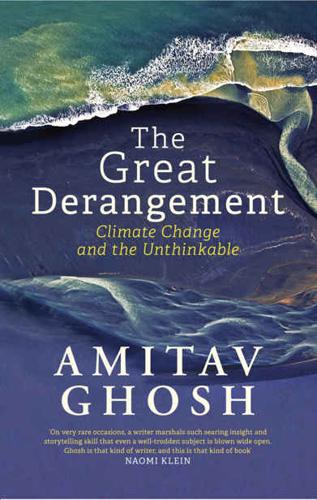climate fiction
description: a literary genre that deals with climate change and its impact on humanity
1 results

The Great Derangement: Climate Change and the Unthinkable
by
Amitav Ghosh
Published 16 Jan 2018
After all, there is now a new genre of science fiction called ‘climate fiction’ or cli-fi. But cli-fi is made up mostly of disaster stories set in the future, and that, to me, is exactly the rub. The future is but one aspect of the age of human-induced global warming: it also includes the recent past, and, most significantly, the present. In a perceptive essay on science fiction and speculative fiction, Margaret Atwood writes of these genres that they ‘all draw from the same deep well: those imagined other worlds located somewhere apart from our everyday one: in another time, in another dimension, through a doorway into the spirit world, or on the other side of the threshold that divides the known from the unknown.
…
In that sense, the events set in motion by global warming have a more intimate connection with humans than did the climatic phenomena of the past—this is because we have all contributed in some measure, great or small, to their making. They are the mysterious work of our own hands returning to haunt us in unthinkable shapes and forms. All of this makes climate change events peculiarly resistant to the customary frames that literature has applied to ‘Nature’: they are too powerful, too grotesque, too dangerous, and too accusatory to be written about in a lyrical, or elegiac, or romantic vein. Indeed, in that these events are not entirely of Nature (whatever that might be), they confound the very idea of ‘Nature writing’ or ecological writing: they are instances, rather, of the uncanny intimacy of our relationship with the non-human.
…
When night falls, one pierces a hole with a needle, applies an ordinary domestic flame, and fire will come out of the bladder and light up the room. There are also oil wells. The color of the oil is turbid, but it burns well and one can have a fire anywhere. It will not diminish or go out in wind or rain, or even when plunged into water. If one is traveling at night, and stores oil in a bamboo tube, it is possible to travel for one or two kilometers on a single tube. . . . Such wells are commonplace, and no cause for astonishment. Mark Elvin (from whose book, The Retreat of the Elephants, these excerpts are taken) further notes, ‘Parts of this region of late-premodern China not only used gas for industrial processes, but had domestic gas cookers, domestic gas lighting, and a primitive form of mobile illumination using bottled oil.